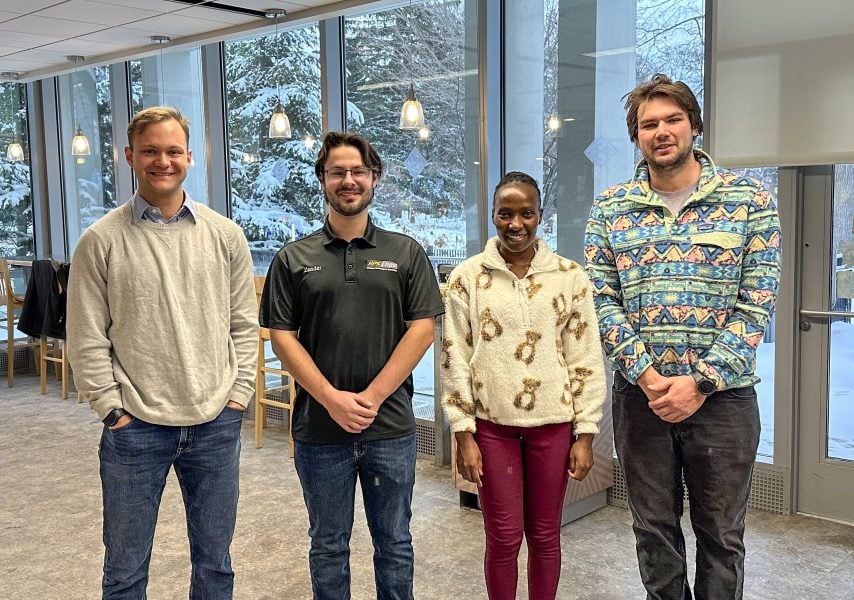
When it comes to recruiting talented doctoral candidates, Michigan Tech’s College of Engineering is starting with our own students!

When it comes to recruiting talented doctoral candidates, Michigan Tech’s College of Engineering is starting with our own students!
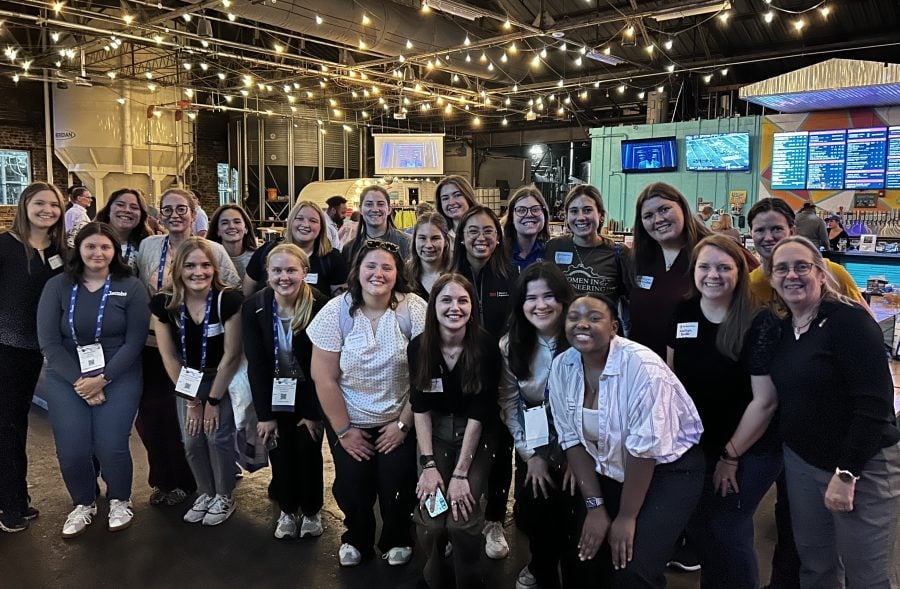
Society of Women Engineers (SWE) is celebrating 75 years of providing a robust network of advocates for any and all looking to support women engineers and their unique place and voice within the engineering and technology industry. At Michigan Tech, our award-winning SWE section is going above and beyond to help members connect with peers and industry around the world.
This October, Tech’s SWE section traveled with 17 students to WE25, the organization’s national conference in New Orleans, Louisiana. The annual conference is the world’s largest gathering dedicated to forwarding the progress of women in engineering and technology.
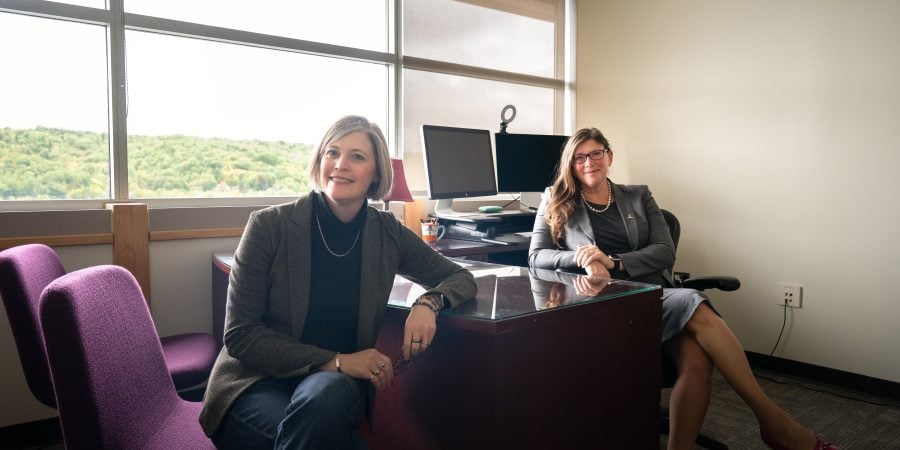
When Dean Michelle Scherer arrived at Michigan Tech’s College of Engineering at the start of the 2024-2025 academic year, she brought with her a new vision of engineering education excellence. Known for its hands-on, practical approach, the College of Engineering under her leadership would train collaborative and imaginative engineers from all backgrounds to develop, test, and build real solutions to meet the challenges of tomorrow.
This summer, Dean Scherer welcomed two new associate deans to the College’s administration who will work closely with her to deliver on that vision of world-class education, research, and leaders
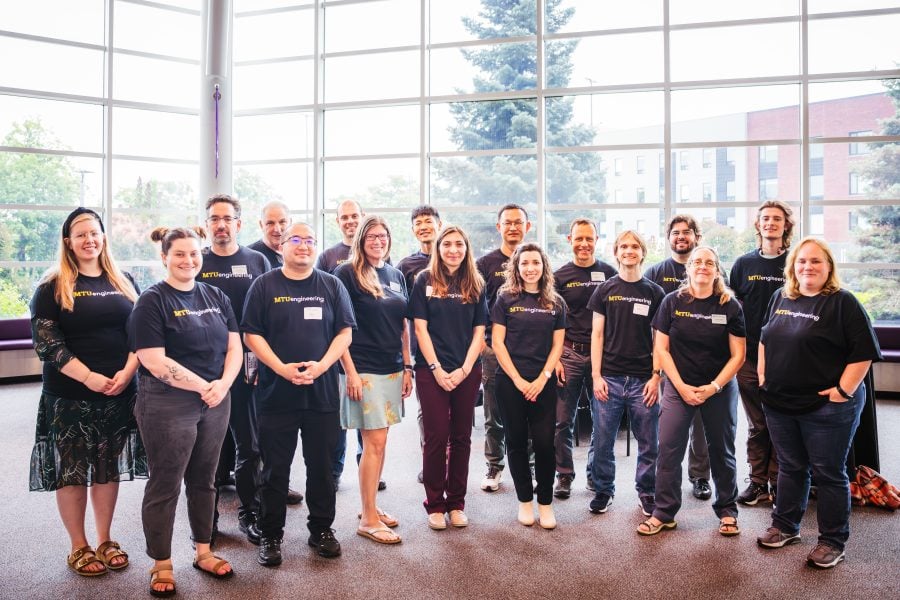
The Michigan Tech College of Engineering welcomes 13 new faculty members across six departments for the 2025-2026 academic year. These new researchers and educators bring a wealth of experience and expertise in fields including computational fluid dynamics, autonomous machines and vehicles, artificial intelligence, freshwater management, and more.
“Tomorrow needs every engineer and we need thoughtful, dedicated faculty to educate and inspire them,” said Michelle Scherer, dean of the College of Engineering. “I am thrilled to welcome this phenomenally talented group to help train the next generation of Husky engineers. Exciting things are ahead!”
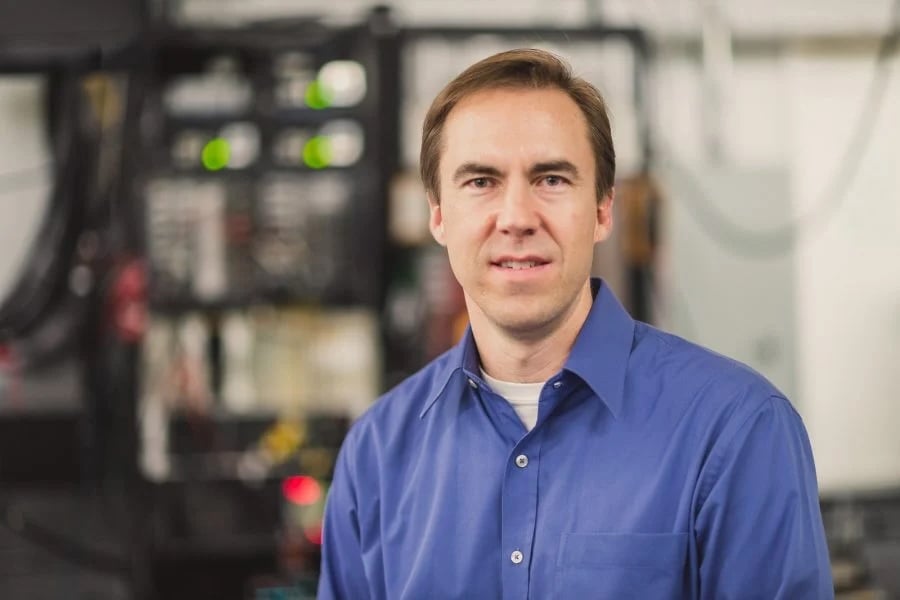
Sometimes, it is as easy as rocket science. That’s been the focus of L. Brad King’s career since the beginning—and the Richard and Elizabeth Henes Endowed Professor of Space Systems with the Department of Mechanical and Aerospace Engineering is going back to basics as this year’s First-Year Engineering Lecture series speaker.
Part of an annual College of Engineering series hosted by the Department of Engineering Fundamentals, King’s lecture, entitled “You’re Good at Math and You Like to Build Things, Now What?,” will cover his expansive career as well as provide practical advice to students on what to expect as they become engineers. This special event, which is exclusively for first-year engineering students, takes place at 6 p.m. on Tuesday, Sept. 9, in Michigan Tech’s Rozsa Center for the Performing Arts.
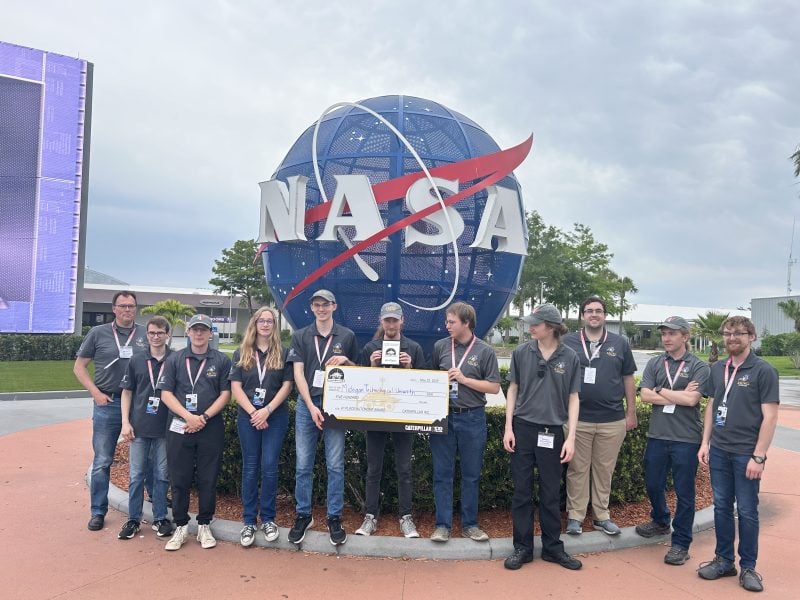
Michigan Tech students have a long history of shooting for the moon—and some Huskies get very close. This May, Multiplanetary INovation Enterprise’s (MINE) Astro-Huskies team placed fourth in the 16th annual NASA Lunabotics Challenge. Developed to highlight NASA’s systems engineering principles, the annual challenge tasks student organizations from universities around the country to design, build, and test a prototype off-world construction robot.
Student groups spend a full academic year working on their prototype while meeting technical milestones and submitting materials to NASA ahead of the qualifying rounds at the University of Central Florida. The top ten teams from qualifying rounds go on to compete in the finals at the NASA Kennedy Space Center Visitor Complex.
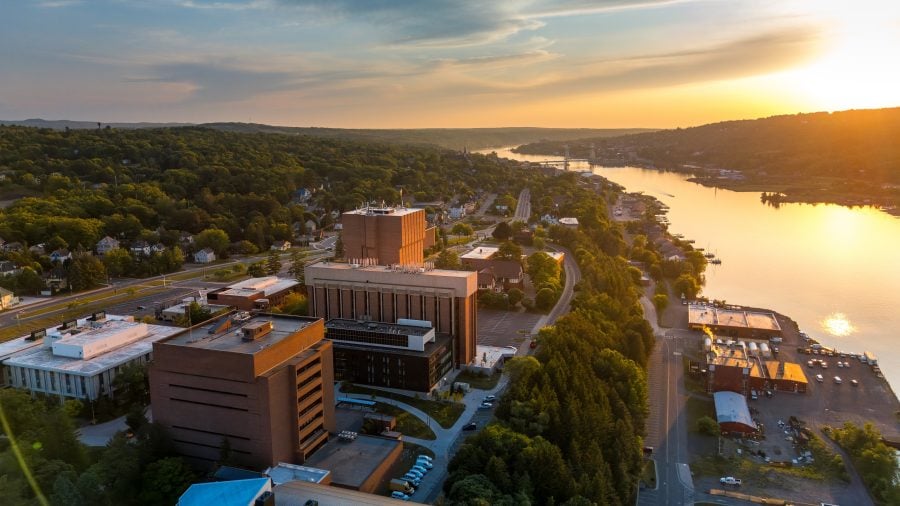
Amy E. Landis has been named associate dean of graduate and online education of the College of Engineering at Michigan Technological University, effective August 4.
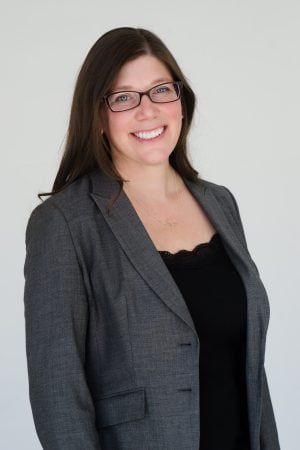
Landis brings 18 years of expertise in academic programming and educational excellence to this new role in the College. Prior to joining Tech, Landis had been a professor of civil and environmental engineering at the Colorado School of Mines since 2017. There, she served as the Presidential Faculty Fellow for Diversity, Inclusion, and Access and raised over $3.45 million for programming and scholarships. Landis, who holds a visiting professorship at the Santo Domingo Institute of Technology in the Dominican Republic, previously served as director of the Institute of Sustainability at Clemson University where she was the Thomas F. Hash ’69 Endowed Chair in Sustainable Development.
“The heart and soul of innovative research at Tech is our graduate students and I am thrilled Amy Landis is joining us in this new position focused on preparing our students for successful careers in industry, academia and the public sector,” said Michelle Scherer, dean of the College of Engineering. “Amy has dedicated her career to providing opportunities and research experiences for engineering students across the globe.”
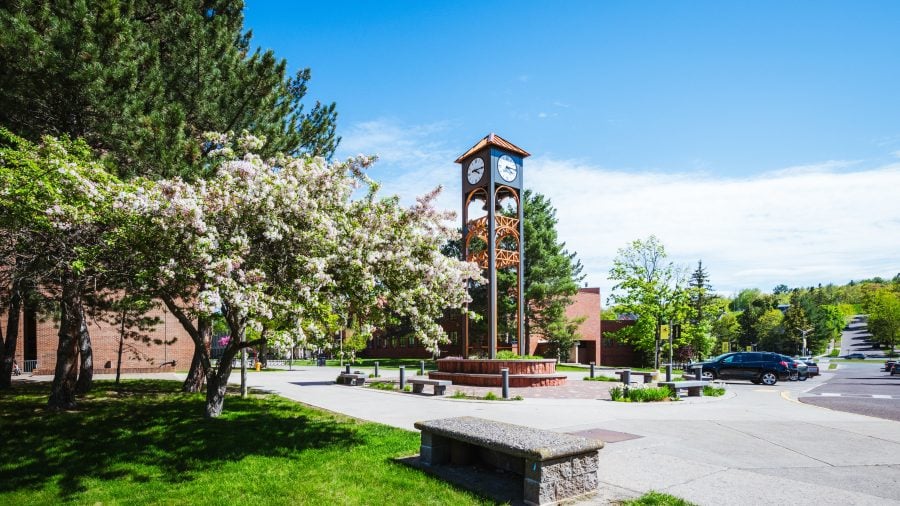
Wayne W. Weaver has been named chair of the Department of Electrical and Computer Engineering (ECE) at Michigan Tech’s College of Engineering, effective July 1. Weaver will lead the ECE department, which supports more than 600 undergraduate students and 100 graduate students, for the 2025-2026 academic year.
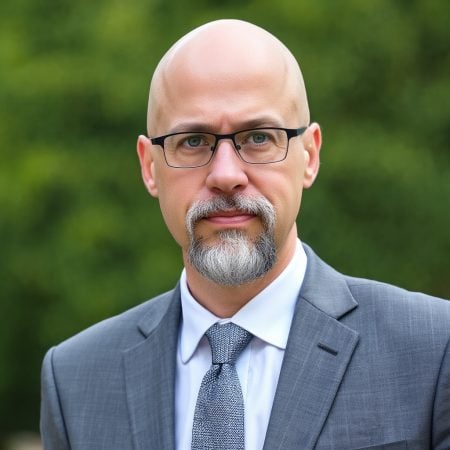
Weaver, a professor of mechanical and aerospace engineering and an ECE-affiliated faculty member, spent more than 11 years serving in his primary appointment with the ECE department as the associate chair and director of graduate studies for the Department of Mechanical and Aerospace Engineering (MAE). Weaver teaches courses on topics of propulsion systems for hybrid electric vehicles and linear systems theory and design.
“Wayne brings a strong background of leadership in research and education. I’m looking forward to working with him and ECE to lead the way in these exciting times of energy transition and digital acceleration,” said Michelle Scherer, dean of the College of Engineering.
Weaver received his BS in electrical engineering and BS in mechanical engineering from Kettering University, then known as the GMI Engineering & Management Institute. He went on to receive his MS and PhD in electrical engineering from the University of Illinois at Urbana-Champaign.
Prior to joining Michigan Tech in 2007, Weaver worked as a research and design engineer at Caterpillar Inc., and as a research engineer for the US Army Corp of Engineers at the Engineering Research Development Center and Construction Engineering Research Lab. Weaver’s research interests include power electronics, microgrids, energy conversion, electrified propulsion systems and non-linear and optimal control. He also currently serves as the associate editor for IEEE Transactions on Aerospace and Electronic Systems.
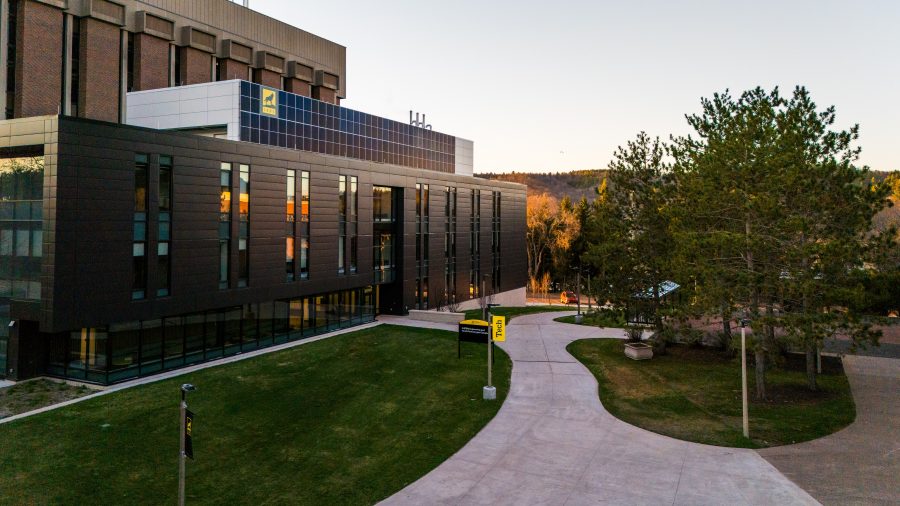
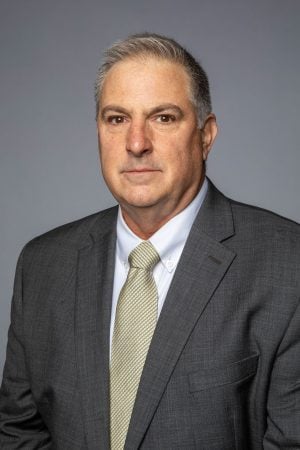
Patrick Pinhero has been named chair of the Department of Chemical Engineering at Michigan Tech’s College of Engineering, effective July 1.
Pinhero joins us from the Department of Biomedical and Chemical Engineering at the University of Missouri, where he was a professor of chemical engineering for 18 years. He served as department chair and co-chair, as well as the director of research for the University of Missouri’s nuclear engineering program. He is a leading researcher in understanding how material interfaces control and regulate chemical processes.
“We are so very fortunate to be welcoming Patrick to our Husky pack to lead our Department of Chemical Engineering!” said Michelle Scherer, dean of the College of Engineering. “The department is recognized nationwide for its research and innovative course design and safety practices and I’m thrilled to have someone with Patrick’s track record of administrative and research leadership joining us.”
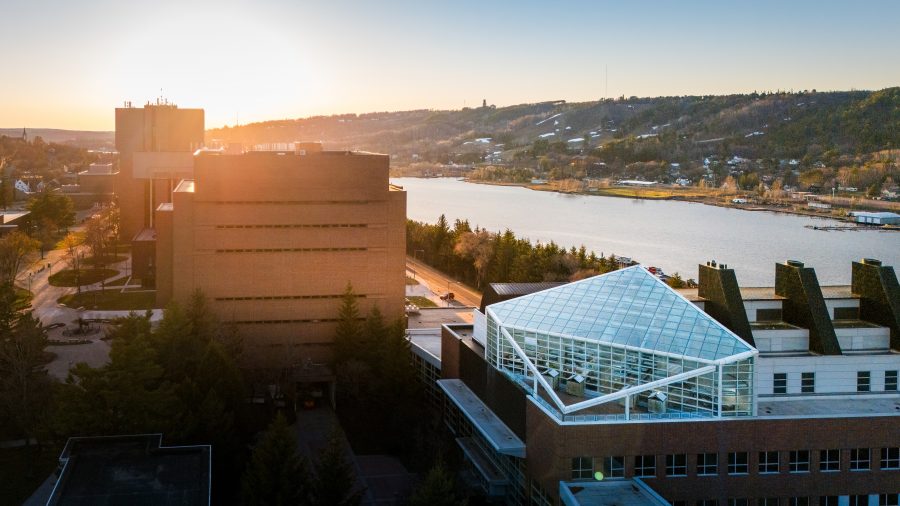
R. Andrew Swartz has been named chair of the Department of Civil, Environmental, and Geospatial Engineering (CEGE) at Michigan Tech’s College of Engineering, effective July 1. Swartz will lead the CEGE department, which supports more than 500 undergraduate students and 100 graduate students, for the 2025-2026 academic year.

Swartz is an associate professor of civil, environmental, and geospatial engineering and currently serves as the CEGE associate chair of curriculum. He teaches courses on topics of steel design, structural timber design, continuous-system modeling, and advanced structural analysis. Swartz is also an affiliated associate professor of electrical and computer engineering. He serves as the faculty advisor for the student chapter of the American Society of Civil Engineers (ASCE) and the Student Steel Bridge Competition team.
“Andrew is an expert in developing sensors and computing for structural applications and has been instrumental in creating and delivering curriculum to prepare our students to tackle complex infrastructure challenges,” said Michelle Scherer, dean of the College of Engineering. “Andrew brings a strong background of leadership in structures research and engineering education, and I’m looking forward to working with him and CEGE to continue to lead the way in engineering a better world.”
An MTU alumnus, Swartz earned his BS in civil engineering before going on to receive his MS in civil engineering, MS in electrical engineering: systems, and PhD in civil engineering from the University of Michigan. His research interests include applications of sensors and computing for structural systems including load characterization, structural health monitoring, and structural control for civil infrastructure assets such as buildings, bridges, pipelines, wind turbines, roadways, and railroads.